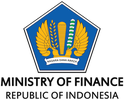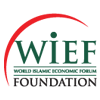Jakarta, 29 August 2016 – The 12th World Islamic Economic Forum (WIEF), held at the Jakarta Convention Center from 2nd to 4th August 2016, has made recommendations for overcoming challenges highlighted by the global leaders and to address the issues of decentralisation and empowering future business, not only for the host country Indonesia, but also for Muslim and non-Muslim economies across the globe, particularly in the wake of global economic challenges.
The recommendations include: 1) promoting and supporting an enabling environment to develop micro, small and medium enterprises (MSMEs), to address job creation and income generation as well as to unlock economic opportunities in rural communities; 2) harnessing the use of innovative training to provide youth with modern skills to enhance their economic exchange value; 3) expanding the use of Islamic Finance to grow the halal ecosystem, modest fashion industry, infrastructure development and social finance; 4) harnessing the use of disruptive technologies for the wider benefit of a more inclusive society; and 5) developing strategies to enhance the potential of creative industries to spread economic growth.
The 12th WIEF, themed “Decentralising Growth, Empowering Future Business”, was a platform for the Government of Indonesia “to promote investment opportunities in the country and to market our products, whether they are products with halal certification or existing products deemed competitive in the international market”, according to Sri Mulyani Indrawati, Indonesia’s Minister of Finance.
The 12th WIEF was indeed such a platform as the bilateral meetings held, on the sidelines of the Forum, among the country leaders resulted in several developments.
Indonesia’s President Joko Widodo and Malaysia’s Prime Minister Najib Razak witnessed the inking of a pact between the Financial Services Authority of Indonesia (OJK) and Bank Negara Malaysia where three Indonesian banks under the ASEAN Banking Integration Framework are allowed to set up subsidiary offices in Malaysia and they will be treated like a local bank.
The bilateral meeting between President Widodo and the Sri Lankan Prime Minister, Ranil Wickremesinghe has spurred the interest of Indonesia to help set up a railway system in Sri Lanka and for Sri Lanka to import Indonesian-made train carriages.
Guinean President Alpha Conde and President Widodo have expressed interest to start joint-capacity development in the fields of agriculture, energy and aviation. President Conde has also invited Indonesian investors to invest in the agriculture and mining industry in Guinea.
The President of Tajikistan, Emomali Rahmon and President Widodo discussed economic cooperation in the textile sector including cotton processing industry. President Rahmon has invited Indonesian business leaders to invest in projects in Tajikistan.
The meeting between President Rahmon and the Prime Minister of Sri Lanka was reported to be focused on the establishment of bilateral cooperation between their two countries in constructing small and medium hydropower plants and launching joint minerals processing ventures in Tajikistan.
Besides these developments, a total of 10 Memoranda of Understanding amounting to US$899.6 million in value were exchanged at the Forum. Real estate, medical facilities, halal industry, franchise industry, Islamic finance and capital markets were the sectors that benefited.
Bursa Malaysia and Indonesia Stock Exchange entered into an agreement of cooperation to develop the Islamic capital markets in Malaysia and Indonesia with the aim to establish both Malaysia and Indonesia as a leading Islamic capital market hub in the world.
Jakarta Industrial Estate Pulogadung (JIEP) and port operator PT Pelabuhan Indonesia II (IPC) signed an agreement to develop Indonesia’s first international Halal Hub that will process and manage all containers based on Sharia principles.
Another cross-border collaboration was the tri-partite agreement made between Kumpulan Perubatan Johor Sdn Bhd, Malaysia and two Japanese companies – Sojitz Corporation and Capital Media Co. Ltd. to set up an Oncology Center at Rumah Sakit Medika Bumi Serpong Damai (RSMBSD) in Tangerang, Indonesia at the cost of US$12 million.
Another significant deal was the agreement between three Malaysian property developers, namely Sime Darby Berhad, SP Setia (Indonesia) Sdn Bhd, and I&P Group Sdn Bhd, and Indonesia’s PT Hanson International to jointly develop an affordable residential project for US$862 million in the Maja area in West Jakarta, Indonesia.
Additionally, the 12th WIEF has set the course to strengthen the role and increase global recognition of Indonesian MSMEs. In her closing statement, Sri Mulyani Indrawati said that the 12th WIEF has successfully explored the crucial role of MSMEs in driving economic growth. “This effort reaffirms the fact that empowering MSMEs by facilitating their larger participation in the mainstream economy will spur innovation and improve efficiency that provides enterprises the competitive edge to navigate through the ever-evolving business landscape.”
These developments at the 12th WIEF have certainly created a strong momentum to accelerate economic growth for the participants and nations of both the Muslim and non-Muslim worlds.
In the closing session, the Chairman of the WIEF Foundation, Tun Musa Hitam stated that the agreements between Indonesian and regional corporations proved that the 12th WIEF has been a strategic platform for important collaborations to strengthen and connect economies in the Muslim nations with their regional and global counterparts. “This reflects our confidence, courage and decisiveness in responding to our current economic challenges, in which collaborative model that enables joint value creation is important and necessary in order to create a level playing field between the Muslim and non-Muslim world to spread economic growth.”
—End—
About the World Islamic Economic Forum (WIEF)
The WIEF Foundation, a not-for-profit organisation based in Kuala Lumpur, organises the annual World Islamic Economic Forum, a world-class business platform showcasing business opportunities in the Muslim world, and runs programmes of the various initiatives of the Foundation that strengthen people partnership and knowledge exchange between Muslim and non-Muslim communities across the globe.
The WIEF has previously held forums in Malaysia, Kazakhstan, Indonesia, Kuwait and
Pakistan, the United Kingdom and United Arab Emirates and aims to bring together Muslim and non-Muslim communities through the common language of business.
The 12th WIEF was held at the Jakarta Convention Center from 2-4 August, 2016.
More information about WIEF: http://wief.org/
For media queries, kindly contact:
• Fiscal Policy Agency Ministry of Finance : ikp@fiskal.depkeu.go.id
• Wai Fai Lo : waifai@wief.org or +6012 209 0068















































